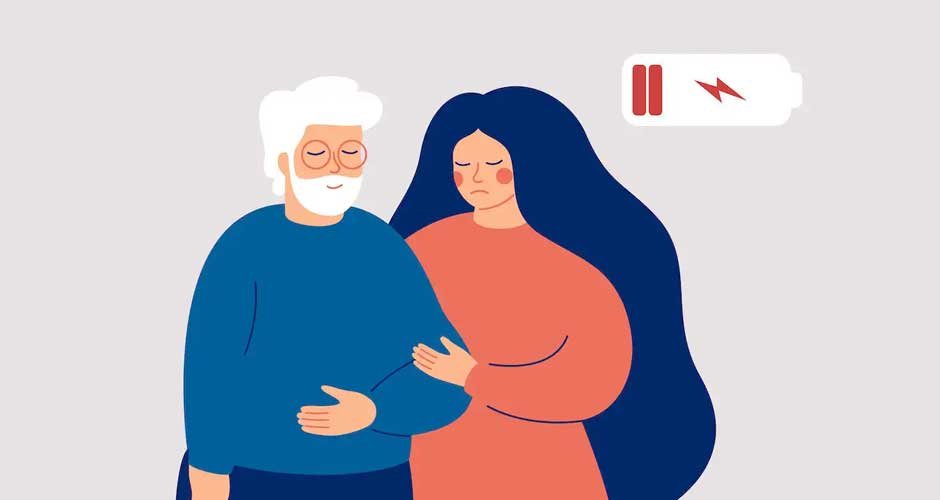How To Cope with Caregiver Stress and Burnout in Elderly Home Care
Looking after an old family member in your house gives much happiness, yet it’s also hard sometimes. Being the one who cares, you might have to handle many duties, take care of difficult health issues and face stress in both feelings and body. As time goes by, these constant requests can affect your health and result in stress and exhaustion for those who provide care.
Understanding Caregiver Stress and Burnout
Stress in someone who takes care of another person comes from the body’s, heart’s, and money-related pressures they face. This stress can show up as feeling too much to handle, worry, quick to anger or sadness. On the other hand, caregiver burnout is when someone feels very tired in their body, mind and emotions because they have been under stress for too long without taking good care of themselves. When this happens, it can make the care they give not as good as before and can also harm their own health and happiness.
Utilizing Technology for Support
Numerous mobile apps and web-based services exist with the purpose of helping those who take care of others to handle their duties better. These aids enable caregivers to sort out times for medication, monitor health-related meetings, and improve conversations with medical experts. Furthermore, online forums and digital support groups offer a place for caregivers to meet people who are dealing with the same difficulties, exchange stories, and look for guidance. By using technology as a helping tool, those providing care can find helpful information and improve their caregiving while reducing stress and avoiding exhaustion.
Recognizing the Signs of Caregiver Stress
Caregivers must notice stress and burnout signs quickly to stop them from getting worse. Often these signs are feeling too much pressure or worry all the time, sleep that changes a lot, being very tired, finding it hard to focus, getting easily annoyed, having body problems like pain without reason and not wanting to be around people.
Strategies for Coping with Caregiver Stress
To manage the stress of caring for someone, look for help from friends, your family or talk to a professional like a therapist. Being part of a group where people are also caregivers can be good because they give emotional comfort and share useful tips. Make sure your goals are achievable, arrange your work by importance, and give others duties if you can. Have breaks often to relax and gain energy back again. Do things that make you happy and feel calm, and keep up a good way of living with the right food, physical activity, and enough sleep.
At Home Care Services
Besides the methods already talked about, using at home care for seniors can play a big role in reducing stress for caregivers and stopping them from getting too tired. These services provide expert help suited to the special requirements of older people, giving those who look after them time to rest and look after their own health.
Home care services offer many kinds of help, like helping with personal needs, looking after medicines, making food, spending time together for company and doing some cleaning. Caregivers who have good training can give direct help with everyday things people do such as taking a bath or shower, putting on clothes, keeping clean and well-groomed and moving around. This makes sure the person you care about gets all the necessary attention while giving you a chance to rest and regain energy.
Preventing Burnout in Elderly Home Care
Creating limits is very important to avoid becoming too tired. It’s good to learn to refuse extra duties and make definite lines with relatives, medical staff, and anyone else taking part in caring for your family member. Try out ways to reduce stress like doing exercises for deep breathing, relaxing muscles one by one and paying attention to the present moment. Keep in touch with friends, relatives and social groups so you don’t feel alone; if necessary, get help from a specialist.
To stop yourself from getting too tired as someone who looks after others, it is important to look after your own health first. You should set limits for what you can do, find people who can help, and use ways to lower stress so that you can deal with the hard parts of taking care of someone else without losing your balance in life. It is important to remember that looking after your own health matters a lot, not just for you but also because it affects how well you can take care of someone close to you.






